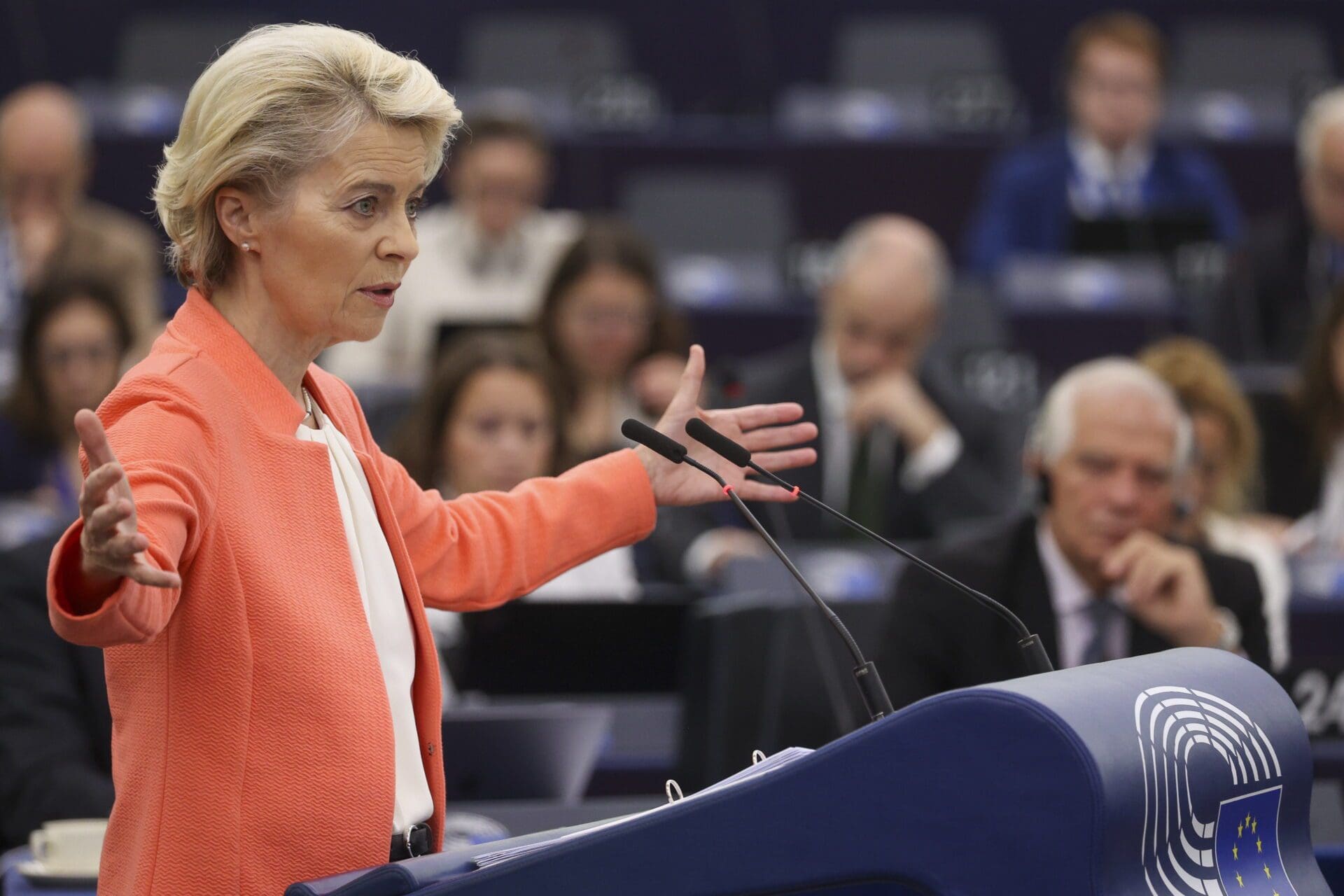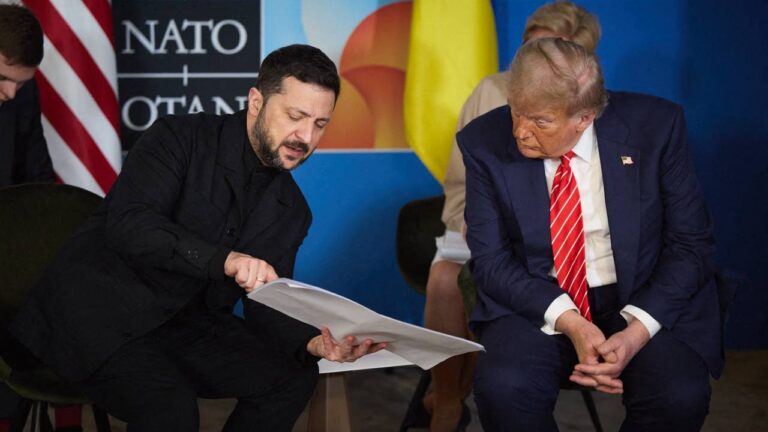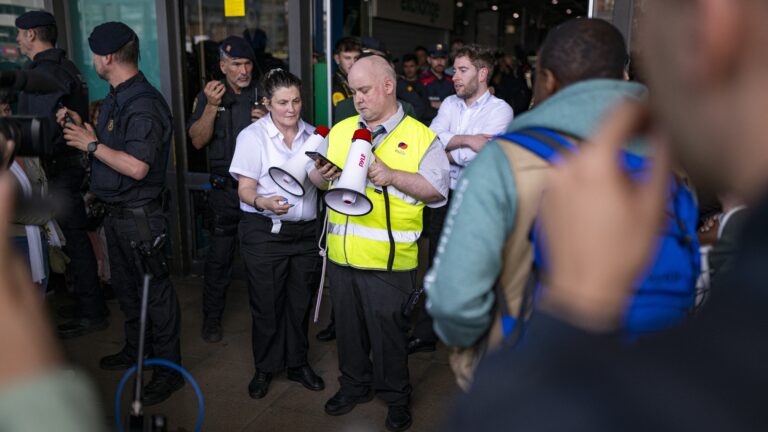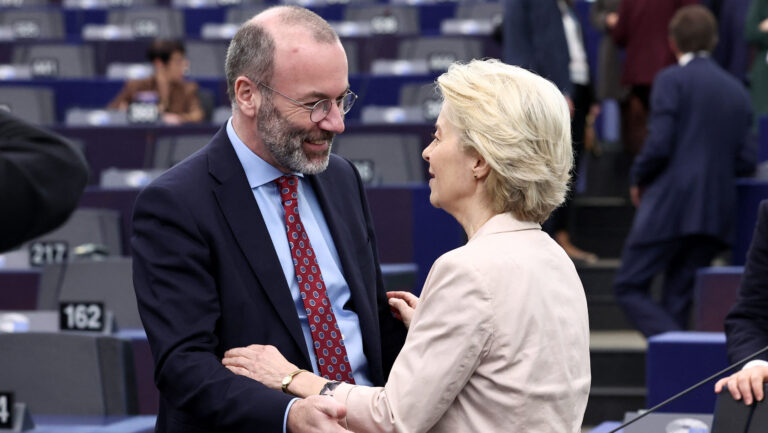‘Who do I call if I want to speak to Europe?’ are the famous remarks attributed to Henry Kissinger. Well, this is something Kissinger most likely never said, as pointed out in a 2009 Financial Times article. ‘Kissinger’s concern was the precise opposite…Kissinger himself has disowned the remark, and it seems that he was actually seeking to divide and rule in Europe, rather than be restricted to a single voice on the telephone,’ Reginald Dale told the FT. But this has not prevented EU bureaucrats from repeating the apocryphal saying whenever they want to justify the ‘ever-closer union’ in their foreign policy drive.
As President of the Commission, she does represent the EU abroad, but not on her own
Of course, the idea that there should be one individual delegated by the member states to negotiate for them with external players is not outlandish, that is why the Lisbon Treaty formalised the position of the President of the European Council and the Treaty of Amsterdam established the position of the High Representative for Common Foreign and Security Policy. But last time I checked, Ursula von der Leyen does not hold either of those positions. As President of the Commission, she does represent the EU abroad, but not on her own, but together with the chief of foreign policy, who is ex officio also the Vice-President of the Commission, and the Council President. So now Von der Leyen’s posing as ‘the’ leader of the EU and pretending to be speaking in the name of all the leaders of the member states does not just put many off, especially in Central Europe, but is also inappropriate.
Well, be that as it may, now the Americans, and corporations like Pfizer, obviously do have a phone number to dial when they want to talk to ‘Europe’—von der Leyen’s, in particular when it comes to the war in Ukraine, as a recent POLITICO article also pointed out. But does she and can she really speak in the name of the continent’s nations? This is a rhetorical question, because the answer is obviously no.
But who is von der Leyen anyway? She sounded like the least bad option for Central and Eastern European conservatives when the candidates for President of the Commission were first proposed in 2019. A mother of seven, who self-identifies as Christian, coming from under the wing of Angela Merkel. The two are not only party colleagues from the Christian Democratic Union (CDU). Merkel brought von der Leyen into her first government cabinet in 2005, to serve as Family and Women’s Affairs Minister. Until she moved to Brussels, von der Leyen was a permanent member of Merkel’s cabinet, serving as labour minister, and then as defence minister, making her the last ‘survivor’ of Merkel’s first cabinet. As a POLITICO article claimed in 2019, von der Leyen was not a blessing for the German military. ‘The Bundeswehr’s condition is catastrophic,’ Rupert Scholz, who served as defense minister under Helmut Kohl, wrote last week before von der Leyen was nominated to the EU’s top post. ‘The entire defense capability of the Federal Republic is suffering, which is totally irresponsible.’ According to the article, ‘Among friends and foes alike, von der Leyen’s stewardship of the defense ministry, which she has headed since 2014, is regarded as a failure. The Bundestag, the German parliament, is currently holding hearings into the affair, including accusations that von der Leyen’s office circumvented public procurement rules in granting contracts worth millions of euros to the firms.’
Von der Leyen is an activist president, who enjoys engaging in grandstanding
But von der Leyen differs from Angela Merkel not only in that her legacy as a minister is not unmarred by scandals and accusations of corruption. Where Angela Merkel was the type of leader who often preferred to do nothing and wait for issues to just go away, von der Leyen is an activist president, who also enjoys engaging in grandstanding, like when she infamously threatened Italians prior to their parliamentary elections during the Q&A session of her lecture at Princeton.
She also seems to be swooning over the United States and its leadership, which quite frankly, makes me and I guess many cringe. As POLITICO reported, in her address at Princeton University she went as far as stating that in her political career she had ’never ever’ experienced ‘such an intense, trustful and detailed cooperation with the White House.’
Well, I am not sure in what ways the relationship is that splendid. I don’t want to be cruel, but if I think about poor Joe Biden who cannot find his way out of a room anymore or Kamala Harris who mixes up North and South Korea talking to vaccine tsar von der Leyen, all I can picture them discussing is what Biden meant when he said ‘I was thirty, she was twelve,’ and not big politics.
So now von der Leyen’s posing as ‘the’ leader of the EU and pretending to be speaking in the name of hundreds of millions does not just put off many, especially in Central Europe, but is also totally inappropriate.
To make matters worse, it seems that the Commission president works in isolation even within her own institution, bypassing her own colleagues when it comes to important decisions. According to unnamed Brussels officials and EU leaders, ‘She doesn’t trust anyone; she lives in a tower.’ The anonymous sources also claimed ‘She doesn’t build alliances. Sometimes that can lead to mistakes as she doesn’t sound people out enough.’
The examples of von der Leyen’s tendency to centralise power mentioned by POLITICO sources were big decisions like the green light for Poland’s rescue fund, for example, or a proposal to classify investments in nuclear or gas energy production as ‘green’. While the unlocking of funding for Poland (which eventually failed under pressure from the European Parliament) or giving nuclear power the clean label were decisions that coincided with the interests of for instance Hungary and with common sense, they were nevertheless negotiated and (attempted to be) pushed through in a most unorthodox manner.
Rumour also has it that the President ‘sometimes works directly with key individuals within the Commission’s directorates general, effectively bypassing the commissioners themselves.’
‘This is a classic case of nepotism, and a perfect illustration of the democratic deficit in the heart of Europe’
Of course, von der Leyen’s disregard for transparency and therefore for the democratic process is not the only issue many take with the EU as such. As former Greek finance minister, economist, left-wing Greek MP Yanis Varoufakis has recently suggested in Budapest, the European project is now essentially flawed, and the Union should either return to be led by the nations that consitute it or should be scrapped altogether. ‘What the hell is the European Commission anyway? Just look at its President: a failed defence minister in her homeland, who has no future in German politics. So, Angela Merkel had decided that she would be the president of the European Commission. This is a classic case of nepotism, and a perfect illustration of the democratic deficit in the heart of Europe. We either need a normal European Union, a democratic alliance of states in which EU citizens elect a federal government, or we should forget the entire project as it is.’
However radical Varoufakis’s comments may sound, it is unquestionable that most Europeans have had enough of the shady, behind-the-scenes dealings in European politics. And of needing to swallow every bitter pill they are served by unelected bureaucrats with too much power and too little competence. Power to the people, I say, right now.








